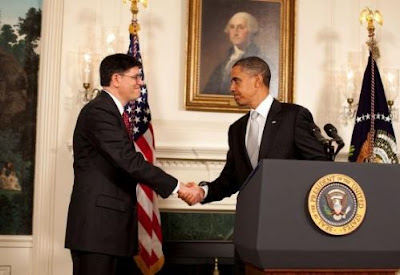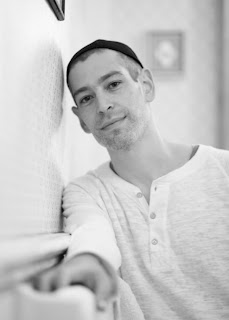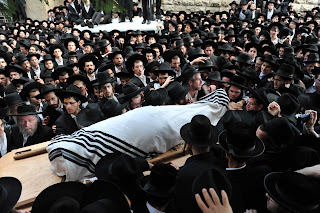This has been anything but a quiet summer for Jewish news. The summer is usually a time when the Jewish world slows down, but not this year. It’s only mid-July and already it seems like there have been a dozen big news stories this summer.
Here’s the list I compiled of news items either about the Jewish community or related to the Jewish community. Feel free to add to the list in the comments section.
Arson Fire at Yad Vashem in Jerusalem – A major forest fire in Jerusalem led to the evacuation of the Yad Vashem Holocaust memorial museum. After burning nearly 40 acres of the Jerusalem forest, firefighters and the Israeli military got the blaze under control. Arson is suspected.
Ban on Circumcision in San Francisco – A ballot measure to ban circumcision in San Francisco has given the Jewish ritual national attention. The measure would outlaw circumcisions on males younger than 18, except in cases of medical necessity, within San Francisco city limits. Anyone convicted of performing circumcisions could be sentenced to a year in jail and a $1,000 fine. The shocking part is that no religious exemptions would be permitted according to this measure.
Ban on Kosher and Halal Slaughter – The Dutch initiative against shechitah (Jewish ritual slaughter) was conceived of by the Party for the Animals, which holds just two seats in the 150-seat Dutch House and one in the 75-seat Senate. The ultra-liberal party argues that stunning an animal is more humane than the razor-sharp knife used in kosher slaughter. If the ban passes, Dutch Jewish leaders will challenge it in court, using the guarantee of freedom of religion enshrined in the European Convention on Human Rights as their defense.
Anthony Weiner – The summer began with the first sex scandal to be linked to Twitter. Rep. Anthony Weiner, a Jewish congressman from New York, had everything going for him. He was moving up the ranks and had become a media darling. His downfall was caused by hubris and his inability to refrain from sending nude photos of himself to women through his Twitter account. As JTA noted, there was a long list of Jewish congressmen who called for Weiner’s resignation: Rep. Allyson Schwartz (D-Pa.), Rep. Steve Israel (D-N.Y.), Rep. Debbie Wasserman Schultz (D-Fla.) and Rep. Sander Levin (D-Mich.). Rep. Jerrold Nadler (D-N.Y.) was the only Jewish congressman to come to Weiner’s defense. The embarrassed and disgraced congressman lied to the public and then resigned amid pressure from his colleagues.
Liberal Rabbinical Students on Israel – Rabbi Danny Gordis has developed a reputation for saying what’s on his mind. Last summer, Peter Beinart accused the American Jewish community of forsaking its own liberal democratic values in blind support of Israel’s move to the political right, and in the process created a generation of young Jews who feel no attachment to the Jewish state. This summer, Gordis narrowed the focus to American rabbinical students in the Reform and Conservative movements who he claims have alienated Israel in order to maintain their liberal political views. The former dean of Conservative Judaism’s West Coast rabbinical school who has become a neo-Con Israeli cited several examples of young rabbinical students criticizing Israel in ways previous generations of rabbis would never have imagined. Gordis wrote of one rabbinical student studying in Israel who refused to purchase a new tallit (prayer shawl) if it was made in Israel. He told of another rabbinical student who traveled to Ramallah to celebrate his birthday, sitting at a bar surrounded by posters extolling violence against Israel. The Gordis critique launched a massive back and forth of editorials on both sides of the debate.
Dominique Strauss-Kahn – The former head of the IMF was considered a front-runner for the French presidency. He would have been the first Jew to hold such a position since World War II. Dominique Strauss-Kahn resigned after he was jailed on charges of sexually assaulting a housekeeper in his room at the Sofitel hotel in New York this past spring. He was released from house arrest earlier this month after prosecutors said the hotel maid who accused the former director of the International Monetary Fund of rape lied to a grand jury. Strauss-Kahn still faces charges of rape. While his lawyers don’t deny there was a sexual encounter, they are calling for all charges against their client to be dropped.
Restructuring at USCJ – Perhaps the Conservative Movement’s central agency thought it could clean house in the middle of the summer when no one was paying attention. Think again. The United Synagogue of Conservative Judaism continues to face a sharp decline in member synagogues as more congregations either refuse to pay dues or leave the movement altogether after merging with Reform congregations. In mid-June, USCJ announced it will undergo a major restructuring that includes the elimination of 27 percent of its 115 full-and part-time staff positions and a reduction in dues for those congregations that stay in the movement. This is all part of USCJ’s new strategic plan that was released in the winter.
Orthodox Teens and the Half Shabbat – The reports of Haredi Jewish teens sitting in a park on Shabbat texting their friends were shocking to the Orthodox world. What might have been even more shocking was that these Orthodox teens had given a name to their observance of Shabbat — “The Half Shabbat.” Several Jewish newspapers reported on this new culture among observant teens who just can’t seem to make it 25 hours without texting on their cellphones. The New York Jewish Week even reported that the practice has become so widespread that perhaps as many as half of Modern Orthodox teens text on Shabbat. Orthodox leaders, from youth group directors to yeshiva principals, are vowing to try to curb this violation among the teens.
Identity Cards – Israel’s Interior Minister Eli Yishai is determined to bring the term “Jew” back into Israeli identity cards under the “nationality” clause that was eradicated a decade ago. Only an Israeli who was either born Jewish or underwent an approved Orthodox conversion would be able to get this designation on the identity card. That means that those who underwent Reform or Conservative conversions would not be identified as Jewish even if they became disabled fighting for the Jewish state.
Gay Marriage in NY – It might not seem like a Jewish issue, but in NY just about everything becomes a Jewish issue. When the Marriage Equality Act in New York State passed in late June, the Jewish groups were divided in the obvious ways. The liberal Jewish organizations celebrated the news while the right leaning groups condemned it. The Anti-Defamation League called it “a significant step forward in the pursuit of individual liberty and freedom from discrimination for New Yorkers” while the Orthodox Union offered that marriage equality for gays and lesbians was “a mistake.” To bring even more debate in the Jewish community, the first gay wedding in New York will be an interfaith one. Rabbi Lev Baesh will officiate at the wedding of two lesbians this Saturday night in Westbury, NY at 11:00 p.m. (well after the end of Shabbat).
H&H Bagel Closes – For some, the closing of H&H Bagel in Manhattan will be just another example of the trying financial times that restaurants and food stores are facing these days. But for those who have ever lived in Manhattan (as I have), H&H Bagel was a staple of the Upper West Side and it was very sad to hear of its demise. The iconic bagel store appeared in “Seinfeld,” “Sex in the City,” and “Entourage.” Personally, I like a Detroit bagel better than New York’s version, but I still recognize that the shuttering of H&H is the end of an era for New York Jews.
Things have been exciting in the Jewish community so far this summer. But, hopefully, the second half of the summer will be quieter than the first half.
(c) Rabbi Jason Miller | http://blog.rabbijason.com | Twitter: @RabbiJason | facebook.com/rabbijasonmiller








